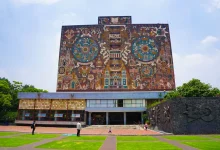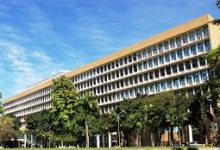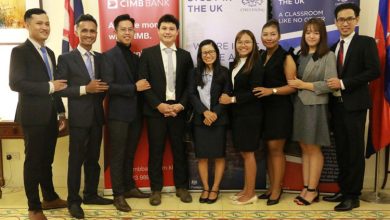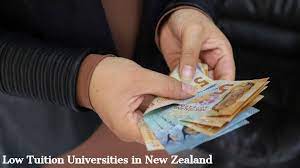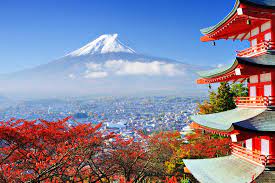Schools and Universities in South Korea that Accept HND Certificates, Second Class and 3rd Class for Masters Degree Programs
South Korea, known for its rigorous educational system and outstanding academic institutions, has become a sought-after destination for international students looking to pursue advanced degrees. However, candidates holding Higher National Diploma (HND) certificates, as well as those who have earned Second Class and Third Class degrees, often face uncertainty regarding their eligibility for Masters programs abroad.
Fortunately, several schools and universities in South Korea have adopted inclusive policies that accommodate these academic backgrounds. This blog post will explore the eligibility criteria for Masters programs in South Korea, and highlight specific schools and universities that welcome applicants with HND certificates, and Second Class, and Third Class degrees.
Eligibility Criteria for Masters Programs in South Korea
The pursuit of a Masters’s degree in South Korea involves meeting certain eligibility criteria that vary from one institution to another. However, there are common requirements that most schools and universities adhere to. For international students with HND certificates, Second Class, and Third Class degrees, understanding these criteria is crucial to successfully navigate the application process. Here are the general eligibility criteria for Masters Programs in South Korea:
- Grade Point Average (GPA): Some South Korean institutions set a minimum GPA requirement for admission into Masters programs. The GPA of the applicant’s undergraduate degree is taken into consideration, and in some cases, institutions are flexible with applicants who have lower GPAs but show strong potential in other areas.
- Letters of Recommendation: Applicants are usually required to submit letters of recommendation from academics or professionals who can attest to their suitability for graduate study. The number of letters required can vary.
- Statement of Purpose or Personal Statement: A well-crafted statement of purpose that outlines the applicant’s academic interests, research goals, and reasons for choosing the specific program and institution in South Korea is often a critical component of the application.
Understanding and meeting these eligibility criteria are the first steps towards pursuing a Masters degree in South Korea. Prospective students are encouraged to contact their universities of interest for specific requirements and advice on how to strengthen their application.
Read Also: NDDC Postgraduate Overseas Scholarship Application 2024/2025
Schools in South Korea that Accept HND Certificates, Second Class and 3rd Class for Masters Degree Programs
While many schools and universities in South Korea maintain high standards for admission into their master’s programs, there is a commendable array of institutions that offer a more inclusive approach. These institutions recognize the value and potential of students with diverse academic backgrounds, including those holding Higher National Diploma (HND) certificates, as well as Second Class and Third Class degrees. Below, we outline some of the schools in South Korea known for their welcoming policies towards such candidates:
1) Hanyang University
Renowned for its engineering programs, Hanyang University has a flexible admissions process for international students. It accepts a wide range of qualifications, including HND certificates and lower degree classifications for certain Masters programs, especially for those demonstrating significant professional experience or exceptional creative portfolios.
2) Kyung Hee University
With a strong emphasis on holistic education, Kyung Hee University offers various Masters programs where students with HND certificates, Second Class, and Third Class degrees can apply. The university values diverse perspectives and experiences, making it a suitable choice for international students with varying academic backgrounds.
3) Sogang University
Known for its liberal arts and humanities programs, Sogang University is another institution that accommodates students from different academic standings. Its admissions committee reviews applications on a case-by-case basis, considering the overall profile and potential of the applicant beyond just academic grades.
4) Inha University
Situated in Incheon, Inha University is particularly welcoming to international students in the fields of science and technology. It accepts a broad range of academic qualifications for its Masters programs, understanding the importance of practical skills and experience in these disciplines.
5) Sejong University
Sejong University offers several Masters programs that are open to students with HND certificates and lower degree classifications. The university focuses on innovation and practical learning, providing a supportive environment for students to excel in their chosen fields.
It is crucial for prospective students with HND certificates, Second Class, and Third Class degrees to directly contact the admissions offices of these schools for detailed information on specific eligibility criteria, required documents, and any additional prerequisites that may enhance their application. This proactive approach will not only clarify the admissions process but also demonstrate their keen interest and initiative towards pursuing higher education in South Korea.
Universities in South Korea that Accept HND Certificates, Second Class and 3rd Class for Masters Degree Programs
South Korea’s commitment to academic diversity and inclusion is also reflected in the approach of its universities towards students holding HND certificates, Second Class, and Third Class degrees looking to enroll in Masters programs. These institutions understand the value of diverse educational backgrounds in enriching their academic communities and driving innovation. The following universities stand out for their flexible admissions policies, catering to students who may not meet the traditional academic requirements but demonstrate the potential for success in graduate studies:
1) Korea University
A prestigious institution in Seoul, Korea University offers a range of Masters programs that are accessible to students with varied academic records. The university values a holistic review process, focusing on the applicant’s overall potential, including leadership qualities and research interests, making it a viable option for those with HND certificates and lower degree classifications.
2) Seoul National University (SNU)
As the top university in South Korea, SNU has a competitive admissions process. However, it also recognizes the importance of diversity and has provisions for applicants with non-traditional academic backgrounds. Candidates with strong professional experiences, exceptional achievements, or significant contributions to their field of interest are encouraged to apply.
3) Yonsei University
Known for its inclusive educational policies, Yonsei University welcomes international students from a broad spectrum of academic backgrounds into its Masters programs. The university assesses applicants based on a comprehensive evaluation of their academic achievements, professional experiences, and personal accomplishments.
5) Pusan National University
Located in Busan, Pusan National University is keen on attracting international talent to its diverse range of Masters programs. It offers several options for students with HND certificates, Second Class, and third-class degrees, emphasizing the importance of practical experience and personal motivation in the selection process.
6) Sungkyunkwan University (SKKU)
With a history that dates back to the Joseon Dynasty, SKKU combines traditional values with a modern approach to education. It provides opportunities for students with various academic qualifications to pursue Masters’s degrees, particularly valuing applicants who demonstrate strong research proposals or innovative project ideas.
Applicants are encouraged to explore the specific program requirements and admissions policies of these universities to identify the best fit for their academic and professional goals. Engaging with admissions counselors and attending information sessions can provide valuable insights into how to tailor their application to highlight their strengths and unique contributions to their desired field of study.
FAQS
Can I do my Masters with an HND certificate?
Yes, in many cases, it is possible to do a Master’s degree with an HND (Higher National Diploma) certificate. While the exact requirements will vary depending on the university and the program, many institutions will accept an HND as an equivalent to a bachelor’s degree.
What grades do I need to study in South Korea?
To study in South Korea, you will need to have a minimum GPA of 2.5 or higher. This is the equivalent of a B average or above in most grading systems. In addition to this, you will need to have completed at least 12 years of schooling and have passed the university entrance exam.
Does Sweden accept HND for Masters?
It’s great that you are interested in pursuing a Master’s degree in Sweden! To answer your question, yes, most Swedish universities do accept HND (Higher National Diploma) qualifications for their Master’s degree programs. However, the specific requirements and eligibility for each program may vary, so it is important to check the individual university’s website for more information.
What GPA is required for Korea University?
To be accepted into Korea University, you must have a GPA of at least 3.0 (on a 4.0 scale) for your bachelor’s degree. In addition, Korea University has high standards for English proficiency, so you will need to demonstrate your English language skills through your TOEFL or IELTS score.
Can I study in South Korea with a low GPA?
While South Korea is a highly competitive study destination, there are still options for students with lower GPAs. There are a number of universities in South Korea that do not have strict GPA requirements, and will instead consider other factors such as work experience, personal statement, and letters of recommendation. Some examples of universities with less strict GPA requirements include Chung-Ang University, Dongseo University, and Hanyang University.
Conclusion
In conclusion, South Korea has a wide range of universities and schools that accept HND certificates, second-class, and third-class students for their master’s degree programs. This is a great opportunity for individuals who may have faced academic challenges in the past but wish to pursue higher education. It is important to research the admission requirements of each institution to determine the best fit for your academic goals and qualifications.
